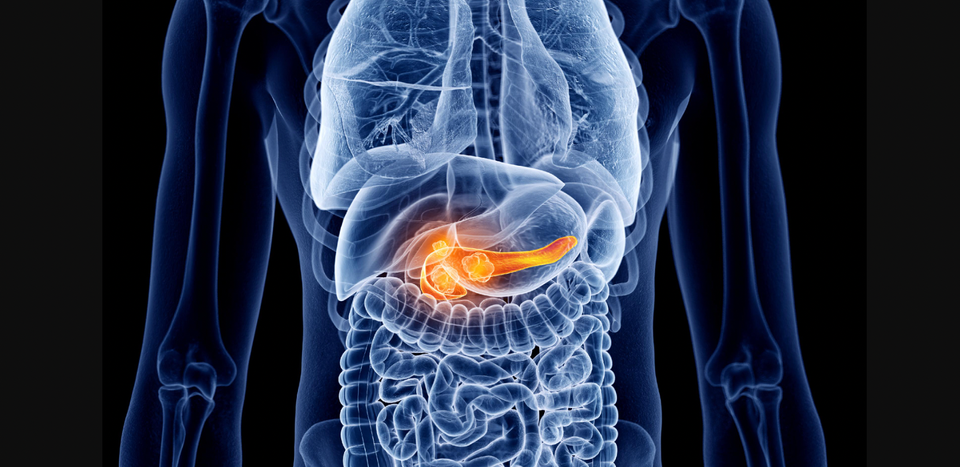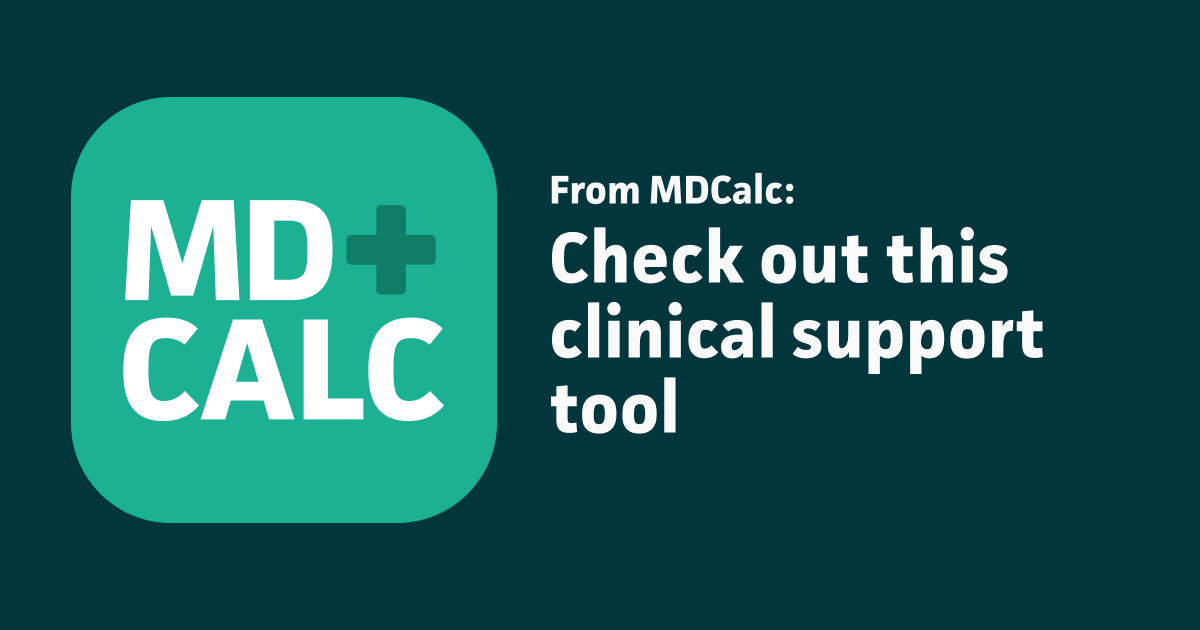Acute Pancreatitis

Take home messages
- Treatment is supportive
- Do not give prophylactic antibiotics
- Let them eat
The pancreas dangerous organ. A bag of the most lethal digestive enzymes just hanging out right next to all of your important abdominal organs, ready to explode at any moment and liquify everything around it.
What actually happens?
- Inappropriate or excessive release and activation of proteolytic enzymes from acinar cells of pancreas*
- Direct damage to pancreas, as well as activation of systemic inflammatory response
- Neutrophil invasion of pancreas, with increased release of their own enzymes, free radicals and cytokines
- Worsening inflammation and positive feedback leading to progressive pancreatic destruction
- Ongoing widespread inflammation then leads to organ dysfunction
*In obstructive causes, the prevention of adequate flow through the pancreatic duct causes premature activation of digestive enzymes, causing direct proteolysis of the pancreatic cells.
Kind of like pulling the pin on a grenade and forgetting to throw it.
What are the causes?
If 'I get smashed' doesn't immediately jump into your mind then that's okay - you're not a third year medical student any more.
The answer is alcohol and gallstones for over 70% of cases.
A more refined way to categorise the causes of acute pancreatitis is by mechanism, rather than a mnemonic that leaves you wondering what that damned 'H' stands for.
What are the common causes of acute pancreatitis?
- Idiopathic*
Obstructive
- Gallstones
- Neoplasm
- Cystic fibrosis
Infection
- Virus - EBV, CMV, mumps, coxsackie B
- Parasites - Clonorchis, Ascaris
- Sepsis of any cause
Trauma
- Trauma - blunt or penetrating
- ERCP
Toxic
- Sustained alcohol use
- Hypertriglyceridaemia
- NSAIDs
- Steroids
- Azathioprine
- Metronidazole
- Hypercalcaemia and hyperparathyroidism
- Scorpions of course
Ischaemic
- Shock and hypoxia
- Vasculitis
- Cardiopulmonary bypass
Other
- Hypothermia
- Autoimmune - sclerosing cholangitis
- alpha-1-antitrypsin deficiency
Ethanol and Gallstones are the two most common, so if you're asked to list two or more of the most common causes in an OSCE or CRQ question, make sure you mention these two first.
*There is a school of thought that 'idiopathic' just means you haven't looked hard enough for the answer.
Who gets it?
Anyone with a pancreas can get it, but the risk factors are:
- Type II diabetes
- Smoking
- Social deprivation
- Obesity
Morbid obesity is unsurprisingly associated with worse outcomes and increased mortality.
How is it diagnosed?
The buzzword here is the revised Atlanta criteria.
The Revised Atlanta Criteria
You need at least two of:
- Pancreatitis-sounding abdominal pain
- Increase in amylase or lipase to three times normal
- Imaging evidence of acute pancreatitis
What investigations should be considered in acute pancreatitis?
- VBG with lactate
- FBC
- Urea + Electrolytes
- LFT
- Clotting
- CRP
- Calcium
- Glucose
- Amylase or lipase
- Triglycerides - if you're interested
- ECG
- Pregnancy test where relevant*
*You can get a raised amylase with ectopic pregnancy.
Imaging
- CXR - pneumoperitoneum, major pleural effusions and other significant pulmonary pathology
- CT abdomen with contrast - yes contrast even with renal impairment
- Ultrasound - looking for gallstones and dilated bile ducts
What are the types?
There are two main categories of acute pancreatitis:
- Interstitial oedematous - >80%
- Necrotising
As with pretty much every disease process we encounter, the mild version makes up the vast majority of cases, generally self resolving without any major lasting systemic effects.
How bad does it get?
The clever people in Atlanta have clearly been busy, because they've named a severity score as well.
In fact, a lot of people have developed severity scores for acute pancreatitis.
Revised Atlanta Classification
- Mild AP - no organ failure
- Moderate AP - transient organ failure or complications
- Severe AP - organ failure lasting more than 48 hours
Bedside Index for Severity in Acute Pancreatitis (BISAP)
Used to predict severity and prognosis, it is quick and easy to calculate
- Age >60
- Pleural effusions
- Serum urea >25mg/ml
- Impaired mental status
- 2 or more SIRS criteria
Calculation within 24 hours of admission.
Patients with a score of 1 or greater have an increasing risk of mortality.
A score of 2 is suggestive of likely necrosis and organ failure.
A score of 5 had a mortality rate of 22%.
Ranson's Criteria
On admission
- White cell count above 16
- Age over 55 years
- Glucose >10
- Raised AST and LDH
After 48 hours
- Haematocrit drop greater than 10%
- Urea increase by more than 5
- Hypocalcaemia*
- Hypoxia
- Increased base deficit
- Massive fluid deficit
A Ranson score of
- 3 or more is suggestive of severe disease with 15% mortality
- 5 points = 40% mortality
- 7 points = 100% mortality
*Hypocalcaemia is a bad sign because it reflects the degree of necrosis. If a whole bunch of lipase is allowed to digest fatty tissues at will, it will produce lots of free fatty acids, which in turn will bind calcium and cause hypocalcaemia.

What are the local complications of pancreatitis?
- Pancreatic or peripancreatic collections
- Pancreatic pseudocyst
- Splenic vein thrombosis
- Superior mesenteric vein thrombosis
- Portal vein thrombosis
- Acute haemorrhage
- Pseudoaneurysm formation
- Pancreatic fistulae
- Abdominal compartment syndrome
- Paralytic ileus
How do I look after them?
Mostly you don't, because they're generally admitted to a surgical ward and you as the anaesthetist or ICU person don't get involved.
You just get to see all the really unwell ones.
Nothing new
- ABCDE as always
- Oxygen if they're hypoxic
- Ventilate them if they ain't ventilatin'
- Fluids if they're dry - (hint - they're always dry)
- Lots of good pain relief - (multimodal but avoid NSAIDs)
- Patience
Why are they always dry?
- Vomiting
- Third spacing
- Lack of fluid intake
- Fever
- Tachypnoea
- SIRS-y vasodilatation
As always, you need to adjust your fluid therapy to each patient. Too much fluid is just as bad as not enough, leading to fluid overload, pulmonary oedema and abdominal compartment syndrome.
A lot of studies have been done to try and figure out the correct way to do fluids in acute pancreatitis, and the answer is still we have no idea.
So we should probably stick to what we know:
- Boluses with assessment of fluid responsiveness
- Titrate to blood pressure, heart rate and urine output
- Use vasopressors if inappropriately vasodilated
- Replace measured losses
- Re-establish enteral intake as early as safely possible
I'm giving co-amox, right?
No. Put the antibiotics down and step away from the drug chart.
Yes of course it can get infected, and the patient can also pick up a pneumonia or UTI along the way, in which case they would need some antimicrobials.
But antibiotics are not indicated for standard acute pancreatitis - you'll just destroy what little protective gut bacteria they've got left.
You only think about antibiotics if you have good-going evidence of infection, and in that case, you probably want to go straight for the meropenem family, because these appear to penetrate the pancreas best.
If you've reached this point, and have a severely unwell patient, you probably want to throw in an antifungal as well.
Lung stuff
Ah yes, back to an organ we really care about.
Pulmonary complications are understandably common given the diaphragm is the only thing separating the poor delicate lungs from the imploding bleach bag of doom on the other side.
To prevent lung badness:
- Proper pain relief, to facilitate adequate tidal volumes and coughing
- Avoid excessive fluid administration
- Spot and manage ARDS early
Sugar and feeding
It shouldn't come as much of a surprise that acute pancreatitis often triggers a rather sporting hyperglycaemia, for two main reasons:
- substantial stress response
- loss of islet cells
The evidence suggests you don't need to go crazy with glucose control - less than 10 mmol/Litre is generally fine.
It's more important to avoid hypoglycaemia.
Enteral feeding as soon as possible
Patients with mild pancreatitis should start drinking and eating as soon as they feel well enough to do so.
- The pancreas does not require 'rest'
- Giving the digestive juices something to play with other than the pancreas itself is probably a good idea
If you've gone five days and not managed to establish adequate intake then it's time to think about supplementing their nutrition.
- NG feed brings fewer complications than TPN
- NJ is only needed if NG isn't working
- TPN is only needed if there is genuine gut dysfunction or fistulae
Should we whip out the gallbladder?
- For mild pancreatitis caused by gallstones, it's probably a good idea to cholecystectomise before sending the patient home, but this often isn't logistically feasible for many patients
- For severe pancreatitis the risk of cholecystectomy is much higher, so often a long period of recovery is required before surgery is considered
- ERCP can be considered for urgent source control if cholecystectomy isn't an option, but clearly this isn't the remit of an anaesthetist
Some other bits
What do I do about necrosis?
- Nothing, most of the time
- Try and avoid doing any sort of intervention for the first two weeks
- If you have to do a laparotomy - for major haemorrhage or gut ischaemia for example - then you try not to disturb the pancreas
- Necrosis should be left to 'wall off' over a month or so
- If you think necrosis has become infected, you are allowed to start antibiotics
- If you think you need source control, consider percutaneous drainage
- Endoscopic necrosectomy is not as fun as it sounds
What is a pseudocyst?
- A bleb of fluid within the pancreas, with a clear cut wall
- Crucially it has little to no evidence of necrosis
- Usually start appearing over 4 weeks after the start of symptoms
- Can get infected
- Usually go away by themselves
What treatments don't work?
- Octreotide
- Protease inhibitors - Aprotinin, Gabexate mesilate
- Prophylactic antibiotics
Example CRQs
The wonderful team over at FRCA-revision.com have put together a series of high-yield and syllabus-mapped CRQs for you to use as part of your revision. They also have an exciting upcoming interactive MCQ quiz which is definitely worth keeping an eye out for.
Check out their question on Acute Pancreatitis
Find the rest of their questions using the link below:

References and Further Reading:





